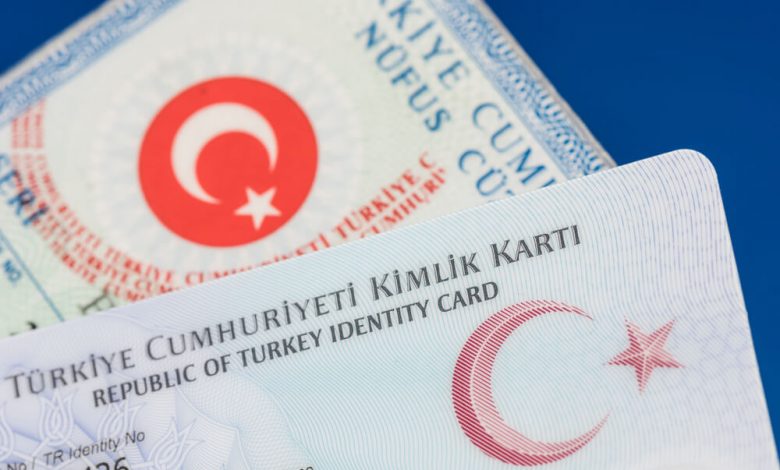
Bridging Identities: The Importance of the Name Equivalence Certificate for Foreigners in Turkey
In an increasingly globalized world, it is common for individuals to hold dual citizenship or to have experienced a name change in their lifetime, perhaps due to marriage or naturalization. However, these different identities can create significant bureaucratic hurdles in Turkey. Imagine trying to sell a property listed under your previous surname or inheriting assets when your Turkish ID and foreign passport show different names. The solution to this critical problem is a surprisingly simple but vital document: the Name Equivalence Certificate (`İsim Denklik Belgesi`).
Many foreigners only discover the need for this document when a crucial transaction is blocked. Understanding what it is and how to obtain it proactively can save you from major delays and legal complications. This article will explain the purpose of this certificate and the process for obtaining it, a task where the assistance of an experienced lawyer can streamline an otherwise confusing bureaucratic process. For residents in the region, an Alanya law office can handle this entire procedure on your behalf.
What is a Name Equivalence Certificate?
An İsim Denklik Belgesi is an official document issued by the Turkish Civil Registration and Citizenship Directorate (`Nüfus ve Vatandaşlık İşleri Genel Müdürlüğü`). Its sole purpose is to formally and legally link the different name and/or surname records of a single individual. It officially attests that the person known as 'John Smith' on a foreign passport is the same person known as 'Can Yılmaz' on a Turkish ID card, or that 'Jane Doe' (maiden name) and 'Jane Smith' (married name) are the same individual.
When is This Certificate Absolutely Necessary?
You will almost certainly need a Name Equivalence Certificate if you are a dual citizen or a naturalized Turkish citizen and there is any discrepancy between your records in Turkey and abroad. Common scenarios include:
- Real Estate Transactions: To prove you are the rightful owner of a property (TAPU) that was registered under a previous or different name.
- Inheritance Proceedings: To prove you are the legal heir when the deceased's records show a different name for you.
- Banking and Finance: To consolidate bank accounts or access financial assets registered under different names.
- Marriage and Divorce Recognition: To link your identity across international marriage or divorce decrees.
- Company and Business Matters: For official corporate records and shareholding documentation.
Without this document, Turkish authorities (like the Land Registry or a court) have no official way of knowing that your two different identities belong to the same person, and they will almost always halt the transaction.
How to Obtain a Name Equivalence Certificate: The Process
The process involves a formal application to the Civil Registration Directorate. While it seems straightforward, it requires precise documentation and follow-up.
Step 1: Drafting the Petition
A formal petition (`dilekçe`) must be written and submitted to the Provincial Directorate of Civil Registration (`İl Nüfus Müdürlüğü`). This petition should clearly state your identity details from both your Turkish and foreign records and explain the reason for the application. A professionally drafted petition from an Alanya Lawyer ensures clarity and avoids initial rejection.
Step 2: Gathering the Required Documents
The application must be supported by a specific set of documents, which typically include:
- Your Turkish ID card (`Kimlik Kartı`) and/or passport.
- Your foreign passport.
- If applicable, the naturalization certificate showing your name change upon acquiring Turkish citizenship.
- Apostilled and officially translated copies of foreign documents that prove the name change (e.g., a foreign marriage certificate showing a surname change, a court order for a name change).
The requirement for properly apostilled and translated documents is a common stumbling block. A professional law firm is expert at handling these international document formalities.
Step 3: Application and Follow-Up
The petition and all supporting documents are submitted to the Directorate. The authorities will then conduct an archival investigation, reviewing your civil registration records to confirm the link between the identities. This investigation can take time.
Step 4: Issuance of the Certificate
Once the investigation is complete and the connection is verified, the Directorate will issue the official Name Equivalence Certificate. This document can then be presented to any Turkish authority as definitive proof of your identity across different records.
Why a Lawyer Simplifies the Process
While an individual can apply for this certificate, the process often involves bureaucratic hurdles, especially for those living abroad or unfamiliar with Turkish administrative procedures. A lawyer provides significant value by:
- Ensuring Document Compliance: Making sure all foreign documents are correctly apostilled, translated, and notarized.
- Drafting a Flawless Petition: Submitting a professionally written petition that clearly explains the situation to the authorities.
- Managing the Process: Handling all communication and follow-up with the Civil Registration Directorate, saving you the time and stress of navigating the bureaucracy.
- Acting via Power of Attorney: If you are abroad, an Alanya Lawyer can complete the entire process on your behalf with a Power of Attorney, so you don't even have to travel to Turkey.
Conclusion
The Name Equivalence Certificate is a powerful tool that resolves identity discrepancies and unlocks the ability to conduct official business in Turkey smoothly. It is a proactive step that can prevent major legal and financial headaches down the road. By seeking the assistance of a qualified lawyer, you can ensure this vital document is obtained quickly and correctly, allowing you to manage your affairs in Turkey with confidence and security.
More content:
- A Comprehensive Guide to Acquiring Turkish Citizenship by Real Estate Investment in 2024
- A Foreigner's Guide to Buying Property in Turkey: A Step-by-Step Legal Process
- How to Obtain a Residence Permit in Turkey? A Comprehensive Guide for Foreigners 2024
- A Comprehensive Guide to Acquiring Turkish Citizenship by Real Estate Investment
- A Foreigner's Comprehensive Guide to Buying Property in Turkey
- Property Acquisition in Turkey for Foreigners: A Comprehensive Step-by-Step Guide
- Turkish Citizenship by Investment: Your Comprehensive Guide
- Consumer Rights in Turkey: A Guide for Foreigners with Defective Goods
- Debt Collection in Turkey for Foreigners: The Legal Enforcement (İcra) Process
- Tax Law in Turkey: A Guide to Tax Liabilities for Foreigners
- Medical Malpractice in Turkey: Legal Rights for Foreign Patients
- Making a Will in Turkey as a Foreigner: Understanding the 'Reserved Portion' Rule
- The Name Equivalence Certificate in Turkey: A Guide for Foreigners and Dual Citizens
- Debt Collection in Turkey for Foreigners: The Legal Enforcement (İcra) Process
- Eviction Lawsuits Against Foreigners in Turkey: Tenant Rights and Legal Procedures
- Making Foreign Judgments Valid in Turkey: The Recognition and Enforcement Process
- Traffic Accidents Involving Foreigners in Turkey: The Legal Process
- Losing Turkish Citizenship: The Legal Grounds for Denaturalization
- Compensation Rights for Employees Dismissed from a Job in Turkey
- Arbitration in Turkey for Foreigners: An Alternative Dispute Resolution
- Commercial and Company Law in Turkey for Foreigners
- Work Permit Refused? A Legal Guide to the Appeal Process for Foreigners in Turkey
- Appealing Administrative Fines in Turkey: A Guide for Foreigners
- Issuing a Power of Attorney in Turkey for Foreigners: Legal Requirements
- Divorce and Alimony Cases for Foreigners in Turkey
- Rights and Responsibilities of Foreigners under Turkish Criminal Law
- The Right to a Fair Trial for Foreigners in Turkey
- Condominium Law in Turkey and Its Importance for Foreigners
- Legal Restrictions for Foreigners Buying Land and Fields in Turkey
- Inheritance Law: Succession and Transfer Procedures for Foreigners in Turkey

 Turkish
Turkish English
English German
German Russian
Russian
